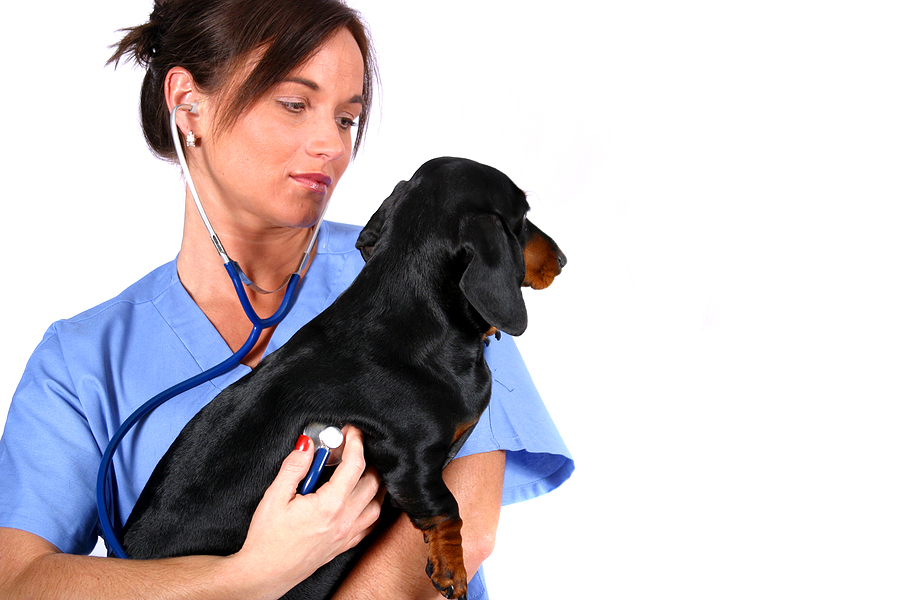Veterinary students more likely to suffer depression
By Rebecca Coxon
Recent studies conducted by Kansas State University reveal that veterinary medicine students are more likely require depression treatment than any other group - including all other undergraduate students as well as the general population of the country.
 While the mental health of students reading degrees in human medicine has been studied extensively, there has been less research of its kind on students of veterinary medicine.
While the mental health of students reading degrees in human medicine has been studied extensively, there has been less research of its kind on students of veterinary medicine.
"We are hoping to predict what contributes to depression levels so that we can intervene and make things run a little bit more smoothly for students themselves," said Mac Hafen, who lead the collaborative studies and has spent five years researching the well-being and mental health of veterinary students.
Researchers from Kansas State University, the University of Nebraska and East Carolina University studied depression and anxiety amongst veterinary medical students. Once a semester, the researchers anonymously surveyed veterinary medicine students in various stages of academic study, according to the K-state Today report this week.
The results of the survey:
- 32% of the veterinary medicine students showed symptoms of depression during their first year (compared with 23% of human medicine students)
- 75% of veterinary medicine students are female (women are twice as likely to suffer from depression)
- Veterinary students experience higher depression rates as early as the first semester of their first year of study
- Depression rates appeared to increase further during the second and third year of study
Euthanasia and variety of anatomy
Hafen said several factors might contribute to the higher rate of depression in veterinary medicine students. Veterinarians deal with stressors that human medicine doctors do not have to experience, such as frequently discussing euthanasia with clients.
Although both programs of study are intense, veterinarians must understand a variety of animal species rather than focusing on the human body. Struggles with balancing work, school and life could also lead to higher depression rates.
"The hope is that we can identify some ways to help alleviate some of the depression and the symptoms of depression and anxiety that might be occurring," Hafen said.
The researchers have already published two articles in the Journal of Veterinary Medicine Education about their work and are in the process of preparing another publication.
Highest suicide rates in UK
This news from the US arrives months after it was widely reported in the UK last year that veterinary medicine was the occupation with the highest rate of suicide.
Research conducted by Dr. Richard Mellanby and published in the Veterinary Record in October of 2005 indicates that the suicide rate for the veterinary profession is four times higher than that of the general population and twice as high as that of doctors or dentists. Veterinarians who specialize in equines are particularly susceptible.
Pete Wedderburn, a newspaper columnist and vet for 25 years, describes his concern, “At a personal level, it means that almost every vet knows a close colleague who has chosen to end his or her own life.”
“The high rate of suicide has been recognised for over a decade, but until now there’s only been speculation about possible causes. Is it because we have access to drugs that can be used for self-euthanasia? Do we become comfortably familiar with the idea of killing our patients to prevent suffering, so that on one stressed-up day, when we look in the mirror, suicide doesn’t seem so strange?”
More support needed?
Whatever the reason, it appears that more help and support should be offered to both veterinary students and those qualified and practising in the field of veterinary medicine alike. Providing more advice and support on how to cope with the difficult situations associated with the occupation may be beneficial early on in a veterinary training at university.
Surrounded daily by death, concerned and mourning pet-owners and requiring medical knowledge of an intensely complicated nature, being a vet is certainly not all about cuddling puppies and kittens. And within easy access of animal tranquilisers and lethal drugs it perhaps is no surprise that vets are near the top of the list for depression and suicide.
Therefore I sincerely hope that all veterinary students (and those around them) seek help if they are showing any signs of depression, to ensure they get the help they need before it develops into something more serious later on in their professional career.





